Final Fantasy VII Remake review
Final Fantasy VII changed my life.
Sounds dramatic, doesn’t it? And I suppose it is, really. But I don’t mean it changed my life the way a death in the family would, or a terrible accident, or a sudden windfall. It was more like the subtle bloom of changes that take place without you really knowing it, like when you’re in a relationship that you won’t realise is significant until it’s over, and it leaves you knowing things about yourself that you weren’t aware existed to know in the first place.
I played it for the first time on Christmas morning in 1997, when I was 16 years old. Up to that point I wasn’t a big gamer. It wasn’t as accepted back then, wasn’t something you shouted from the rooftops as much as hid behind a forced love of football and biking. Or at least, I did, anyway. But it was a gateway game for me, the first one I ever fell for, the first one I ever played for over a hundred hours, the first one I rinsed every drop from, the first one I played from start to finish more than once. For most of a year it was the only thing I played besides the odd bout of Street Fighter with my brother, until, eventually, I moved on. I never went back to Final Fantasy VII, but it had cemented in me a love for games and gaming – and in particular RPGs – that has endured for the last 23 years.
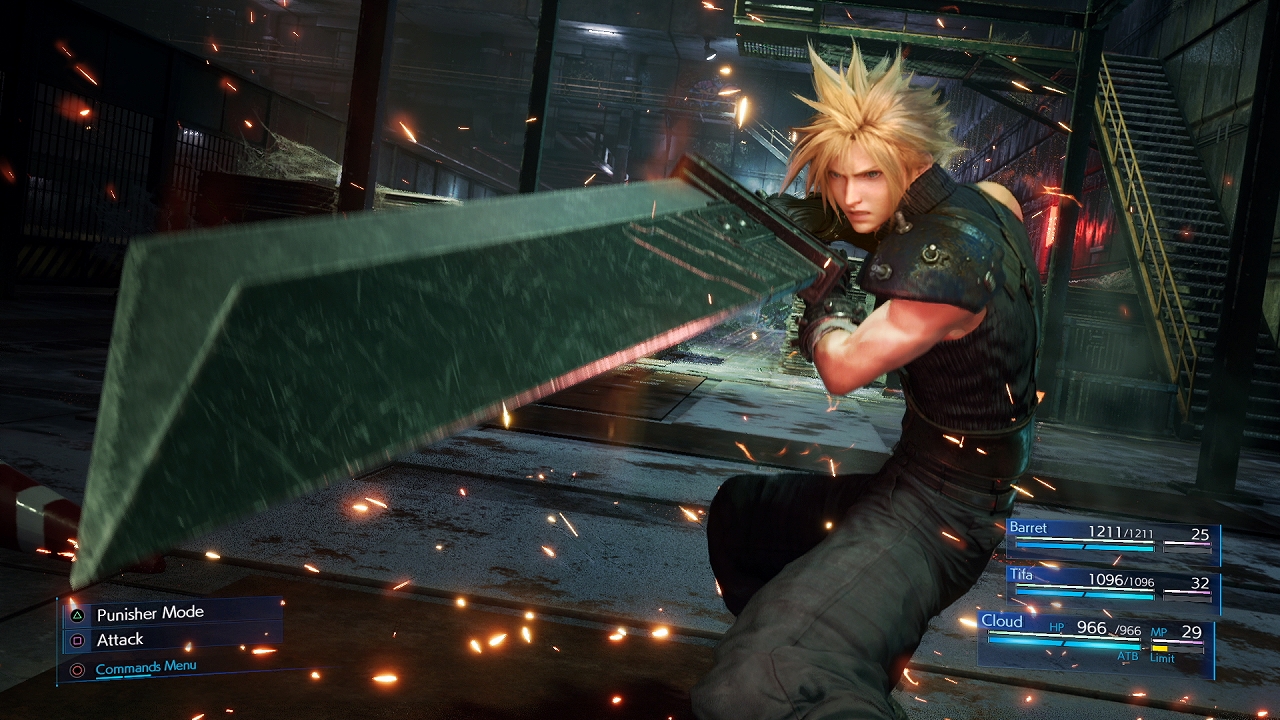
I’m telling you this because it’s important to know that the original game is special to me. It’s the reason I haven’t played demos of the Remake, why I avoided trailers and spoilers as much as I could. I’ve tried to stay impartial, to take the Remake at face value and be as professional and unbiased as possible – but I was simply not prepared for just how much it would matter to me again. I wasn’t prepared for the feelings.
It says something when my first fifteen minutes with the Final Fantasy VII Remake were spent grinning like a child as the title screen music played. I kept trying to click a button to start, but ended up, well, not. It’s an exceptional piece of music, and it spoke to parts of me I’d all but forgotten. The memories it evoked weren’t physical, weren’t of a younger me playing FF7 in my Reebok Classics; they were more like sense-memories of a time before I had to do all this troublesome growing up. Eventually, though, I did press that button, and plunged once more into the world of Cloud Strife and Avalanche. I’ll be honest, the magic did begin to wear off after some considerable time, just a little, but the opening few hours with Final Fantasy VII Remake are almost mesmeric.
These early hours are also where the Remake stays closest to the source material. This is not simply a re-skin: like the Resident Evil 2 Remake, this is something absolutely new, built from the ground up, that uses existing characters, situations and story beats as framework alone. This is a spoiler-free review and so I’ll be gentle, but to anyone who knows the story, almost every relationship protagonist Cloud Strife is forced to form is tinged with tragedy.
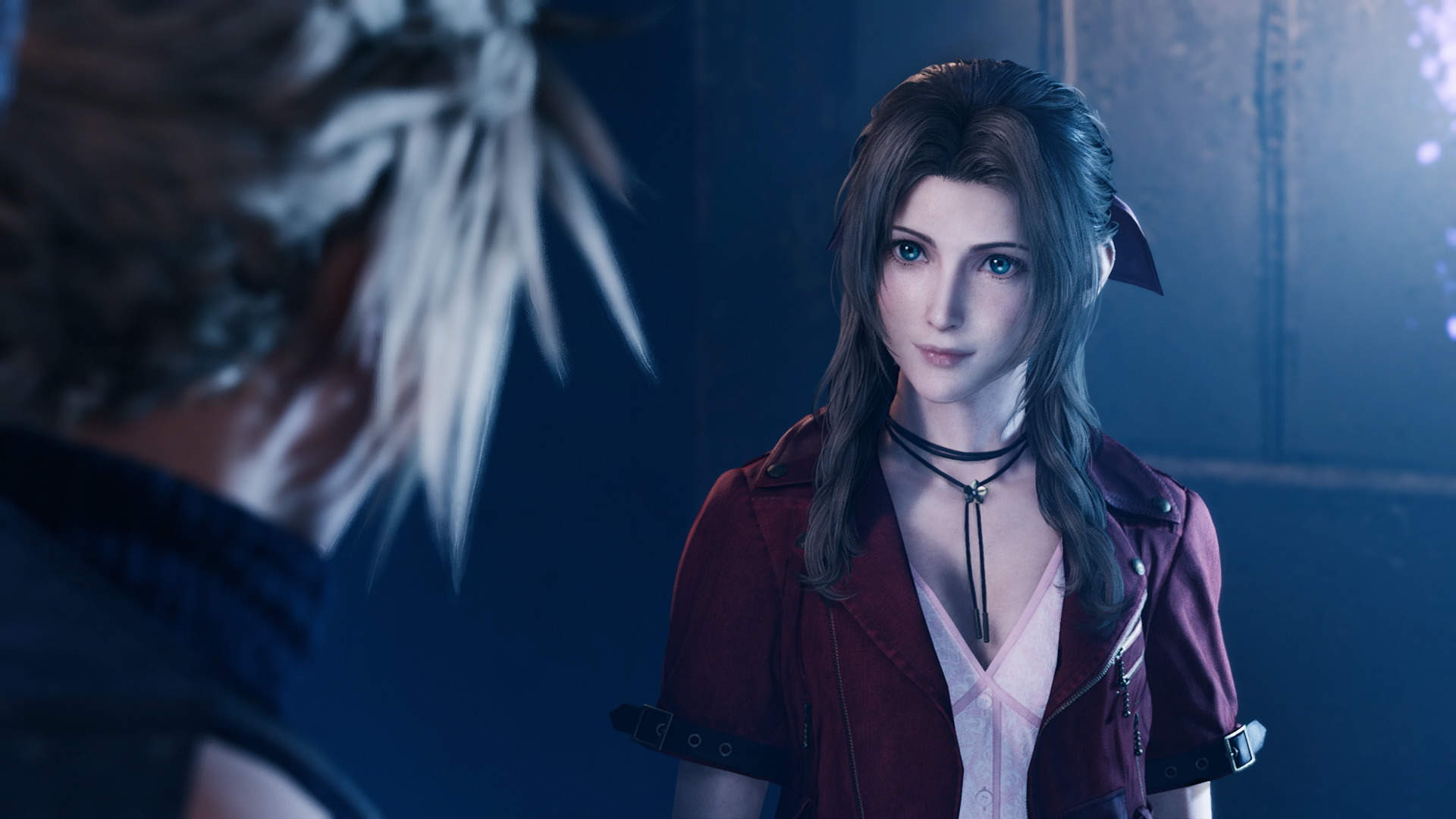
We begin with eco-terrorist group Avalanche breaking into a Mako Reactor in the city of Midgar. Mako is the life energy of the planet and, while it allows the evil Shinra Corporation the power to create wonders of science and magic, its misappropriation is bleeding the planet dry. This particular cell of Avalanche has hired enhanced but haunted ex-SOLDIER Cloud Strife to help them break into the Mako Reactor and destroy it, dealing a blow to Shinra in the process.
Those initial chapters, spent controlling Cloud alongside the gruff, overbearing freedom fighter Barret Wallace, are amazing. The original was a turn-based affair, like many other JRPGs of the time and indeed developed since, but Final Fantasy VII Remake does away with that in a controversial decision that will surely upset some diehard fans. That said, the combat in Remake is the absolute highpoint. Fluid, fast-paced and deep, it mixes real-time melee combat with tactical pauses to select spells, abilities, items and Summons.
Even controlling more than one character, the action is hypnotic. Character animations are unbelievably smooth, the pace of combat slowed only by some of the enemies taking maybe a mite too long to defeat in the early game. Spells are unlocked by socketing orbs of Materia (the physical manifestation of Mako) into weaponry and accessories, which allows you to use magical elemental attacks as well as a variety of passive and active buffs, debuffs and automatic actions.
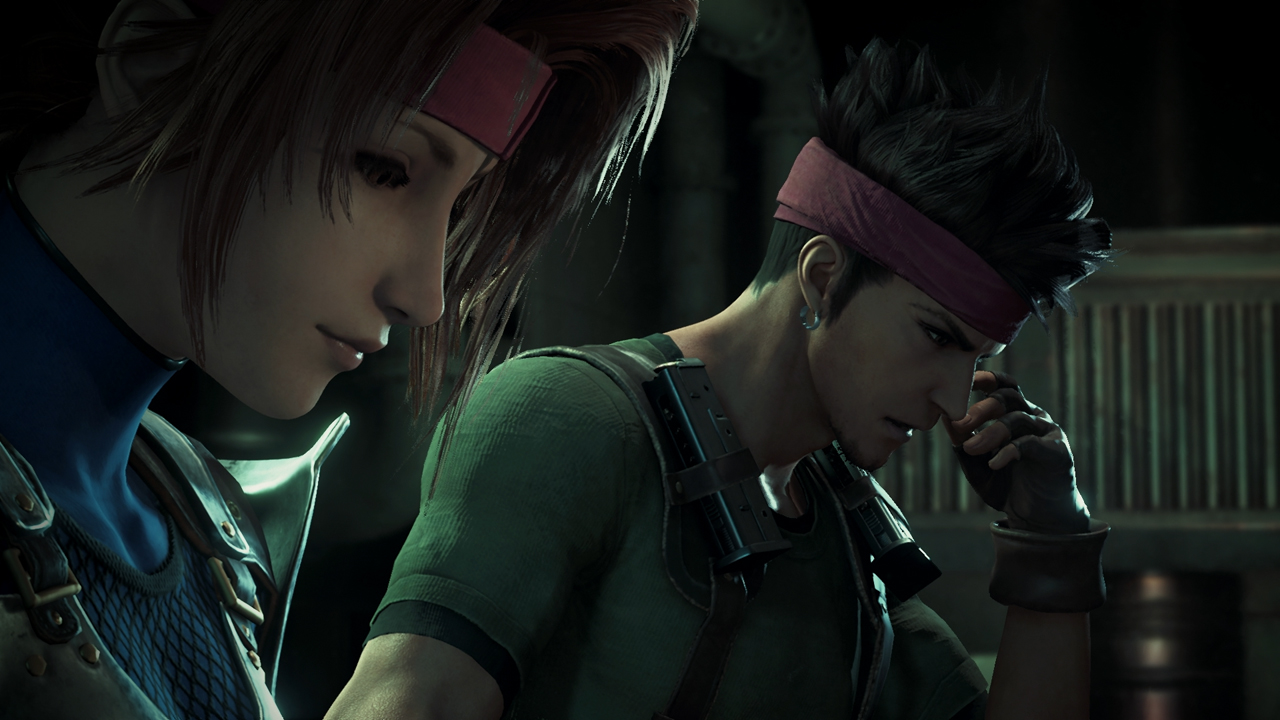
Initially you’re introduced to systems on systems, from Materia to weapon upgrades to abilities. Each weapon you equip comes with a new ability, which you learn by using it in combat., An example is Cloud’s Nailbat, which replaces his sword but slows his attacks considerably. It never felt natural to me, so I used it until I learned the highly damaging Disorder skill and then switched back to my sword. This is not a game that throws equipment at you, though, and weapon and accessory upgrades come slowly.
Thankfully, you can equip trinkets to unlock buffs or upgrade specific Materia orbs through use, for example elevating your Fire spell to the more powerful Fira, and then Firaga, which uses more Magic Points to cast as you go. In battle, you’ll need to fill a segment of your Active Time Battle (ATB) gauge to use any thing but basic attacks, either a spell, ability or item such as a Hi-Potion or Phoenix Down to revive a fallen ally.
Several hours in you’ll receive your first red Materia, the Summon known as Ifrit, which calls a colossal fire spirit to fight beside you. Unlike in the original where a Summon was a single use attack, in the Remake they remain on the battlefield beside you until their timer runs out, and you can use their special attacks in the place of yours as long as at least one segment of your ATB gauge is filled. You’ll unlock more as you play, usually by besting them first in a VR simulation created by teen genius Chadley, and each one is a screen-shaking spectacle, especially when their timer runs out and they unleash their devastating ultimate attack.
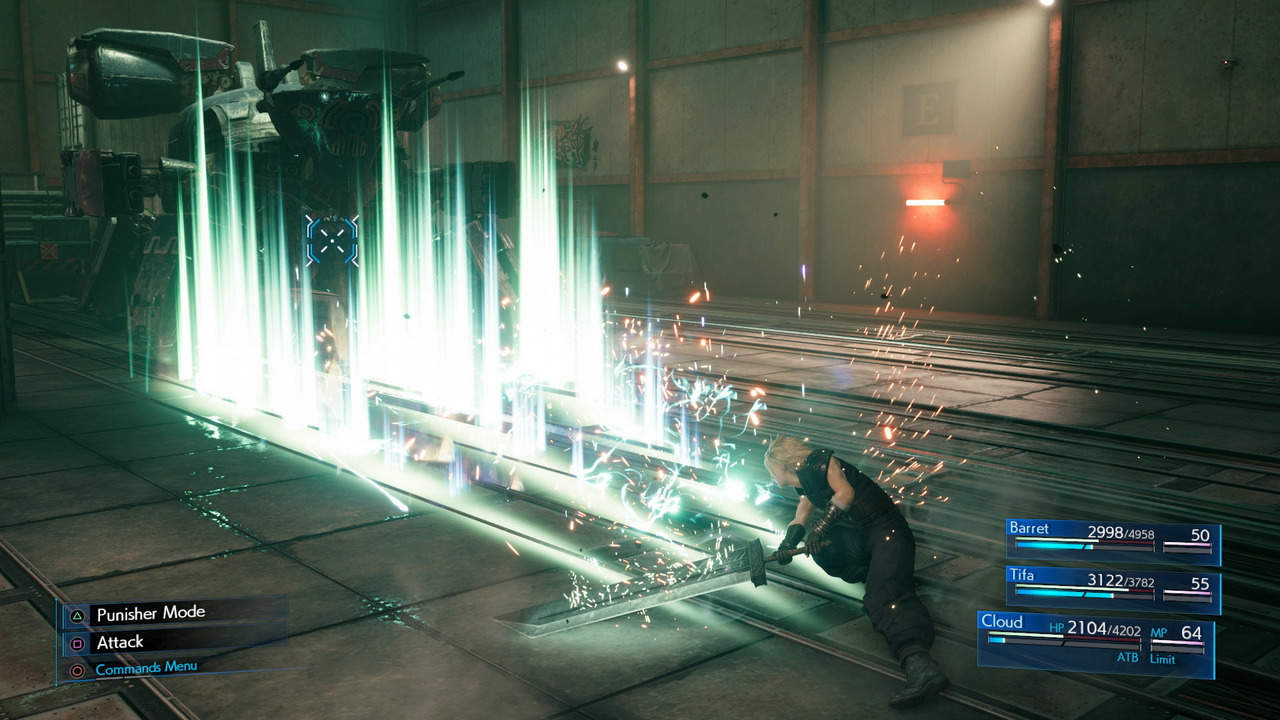
Combat is the mainstay of Final Fantasy VII Remake. You’ll almost always control Cloud, with other characters switching in and out as the story dictates. It’s important to note that the Remake has added so much and fleshed out the source material by such a degree that several of the 8 recruitable characters aren’t even introduced. Instead, you have a core group of heroes with the odd NPC joining in here and there.
Speaking of additions, Square Enix haven’t held back when it comes to extra content. For a start, each hub town you visit throughout the campaign has a selection of sidequests that you can undertake to earn equipment, consumable items, collectible music tracks and Materia. While it’s nice to have such additions in the Remake, a lot of these sections sadly feel like filler designed to pad out the run time and give you things to do to slow down the otherwise mostly unrelenting pace of the plot. With the exception of a mid-section sag, the story rarely lets up, and Cloud and co. usually have somewhere they need to get to quickly.
But the extra content doesn’t begin and end with sidequests. The character development and world-building have been given massive injections, even making the Avalanche trio of Biggs, Wedge and Jessie feel like important, fleshed-out characters. The writing totters on the edge of JRPG cheese only rarely (particularly after Aerith is introduced), but for the most part the script and delivery – especially from Cloud and Tifa – are on-point. Cloud himself is an almost inexplicably likeable protagonist, his dry delivery and no-nonsense attitude making him the perfect straight-guy foil for pretty much every other character, until his past catches up with him or he suffers a sudden bout of compassion that he quickly swallows down. His confidence in his abilities and the easy way he encourages others make him a natural, inspiring leader, even if he doesn’t want the job and would rather play the part of the callous mercenary to keep people, even childhood friend Tifa, at arm’s length. The story flows well, too, with clear villains and, of course, one of gaming’s most notorious antagonists in the menacing, almost spectral, Sephiroth, whose memory haunts Cloud even in his waking moments.
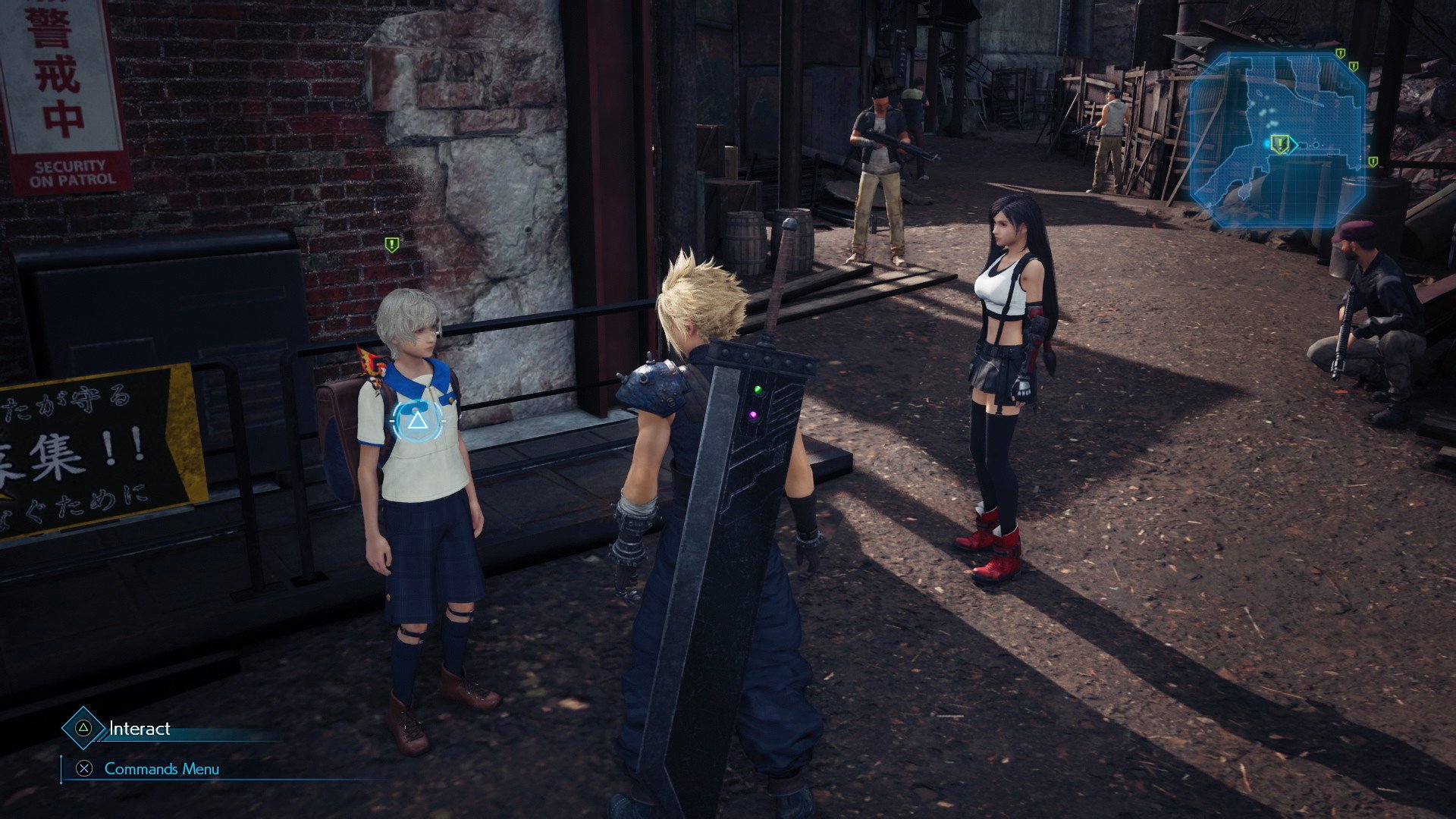
A handful of new characters help to move the extra story along, and some beats you may remember are handled completely differently here. For instance, one of the most entertaining sections of the first half is in service of telling an old chapter in a new way.
If Final Fantasy VII Remake has a fault, it’s that, ironically, there’s simply too much of it. People worrying that they would get a short game because the story only covers the first few hours of the original are in for quite a surprise, but whether it’s a nice surprise or not will depend massively on your tolerance for obvious filler. There are story elements that have been added that didn’t need to be, some of which don’t yet make sense in this version of the world or in context with what I know happens in the original, but really that’s my only complaint. A lot of the non-combat sections are spent traversing to and fro on foot, and the odd environmental puzzle or deliberate diversion (usually rewarded with a Materia or item) make exploration not only essential but worth your time.
Aesthetically, it’s staggering at times. The city of Midgar and its environs have been imagined here in such detail that I found some of the vistas breathtaking – and not just because Square Enix so deftly conjure memories from my childhood. A sound-bite here, an image there, a line of dialogue, maybe. It creates an atmosphere that fans of the original will find unmistakable, and the effortless way the world mixes things that should seem ridiculous (Chocobos, for example, or many of the enemies) with a setting that feels tactile and tangible evokes the best moments of Final Fantasy XV.
I noticed some low-res textures here and there, but I think these are deliberate, given which textures they are: the inside of a grubby apartment door, the badge on a journalist’s arm that’s rarely ever in shot anyway, distant cityscapes that are there for backdrop purposes and scaling. Walking through the slums and districts of Midgar, you’ll spot few faces or outfits that are repeated, and hear few lines of dialogue on loop.
What you will hear, though, is an aural feast. The music, from the score to the district and character themes (all of which you can collect), is nothing short of spectacular. Sure, depending on your tastes, some of the tracks are take-it-or-leave-it, but the majority will conjure up memories for fans that money can’t buy.
I came into the Final Fantasy VII Remake as blindly as I possibly could. I had my memories of the original, of course, but they were heavily diluted by 23 years of playing other games. Yet there are so many subtle elements in the Remake that act like minute catalysts, like dew drops on morning flowers that make them open up to the sunshine again, tiny explosions of thoughts and feelings that fired my endorphins and had me smiling to myself before I realised why.
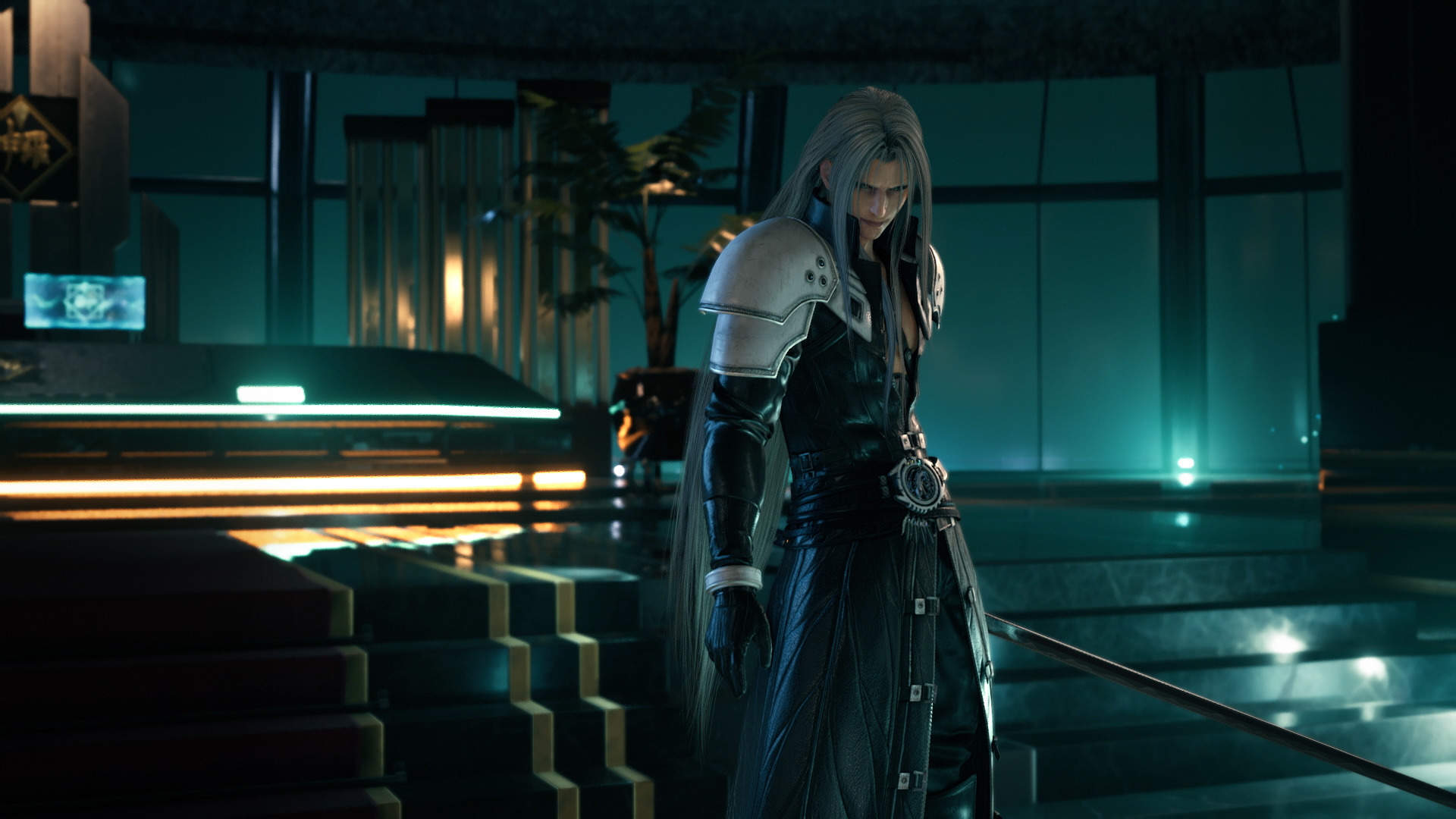
If you’re heading into Final Fantasy VII Remake as a newcomer, it’s fair to say you won’t pick up on these subtle hints, but what you will instead get is a brand new JRPG that arguably sets the bar for the genre. There is depth in the systems, though not, I suspect, enough to worry about things like build diversity; but the combat and story-telling, the in-engine cutscenes, the off-the-wall character and enemy design and the world itself are exceptionally well put-together.
Yes, it sags a little in the middle, and some of the sidequests feel like unnecessary busy-work, but I can’t fault the execution. I didn’t encounter a single bug, and at no point did I feel less than fully invested in the plight of Avalanche, the relationships between Cloud and Tifa or Cloud and Aerith, or the struggles of the people of Midgar.
Final Fantasy VII Remake is simply stunning. It’s a mesmerising video game from start to finish, and even in its many slower moments there’s humour to be found, or scraps of character, or Easter Eggs for the observant fan. It’s sadly not perfect, but it’s more than I could have hoped it would be, and a staggering masterclass in remaking something beloved for a new – and old – audience.





